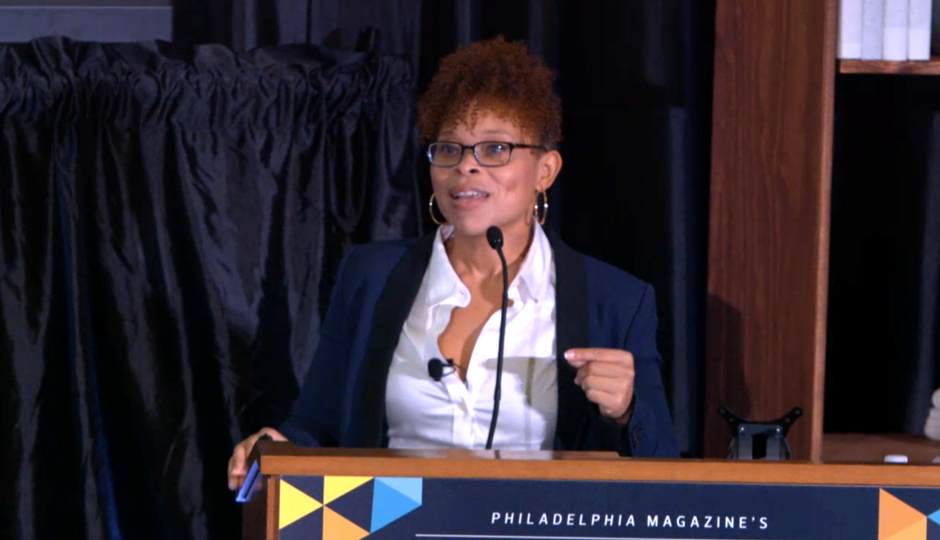ThinkFest Recap: Brigitte Daniel Says Philly Should Be Hub of Tech Diversity

Brigitte Daniel at ThinkFest.
ThinkFest is streaming live all day. Watch ThinkFest here.
The value of diversity to businesses seems intuitive: Teams of people with varied ethnicities, genders and sexual orientations will better represent your customer base — helping to improve problem solving and decision making.
So why is the tech industry still predominately made up of males who are white or Asian? Brigitte Daniel, executive vice president of Wilco Electronic Systems — one of the last black-owned cable companies in the United States — took to the ThinkFest stage to ask why.
“I love Philadelphia, but sometimes I want to strangle the city,” she said. “I’m from Philly, I have that right. Just like people have the right to hate our sports teams sometimes.”
“There are 6,000 local tech firms in Philadelphia,” she continued. “It would be a missed opportunity if they look like the national tech firms with the same demographics.”
Daniel cited a McKinsey study finding that there is a “direct linear relationship” between diversity and business growth, and that for every 10 percent increase in diversity on executive teams, a company’s EBITA rises.
“Inclusiveness is the game-changer,” she said. “Organizations that are brave enough to address inclusion will reap the benefits.”
To illustrate her point, she discussed Temple University’s Apps and Maps program, where kids from underprivileged neighborhoods learn about technology then build their own tech platforms. One group created Gotcha, an app that allows users to take a photo of a shoplifter then blast it to the police and other business owners in real time.
“Six kids out of South Philly who never touched a computer before solved a multibillion problem,” she said.
Another group created Heart-Rate Headphones, which monitors your heart rate during exercise then picks motivational music stored on your phone.
“There are million-dollar ideas right in the ’hood,” she said.
“Now, these kids are seeing themselves as entrepreneurs and inventors,” she continued. “If we can change a child’s attitude about their future, you can change a family’s attitude about a community. If you can change a community’s attitude, you can change a city.”
So how can the local tech community change? Start by looking for minority candidates in different places, like historically black colleges or all-female schools.
“If we continue to go to the same places,” she said. “We’ll continue to find the same people and get the same results.”


